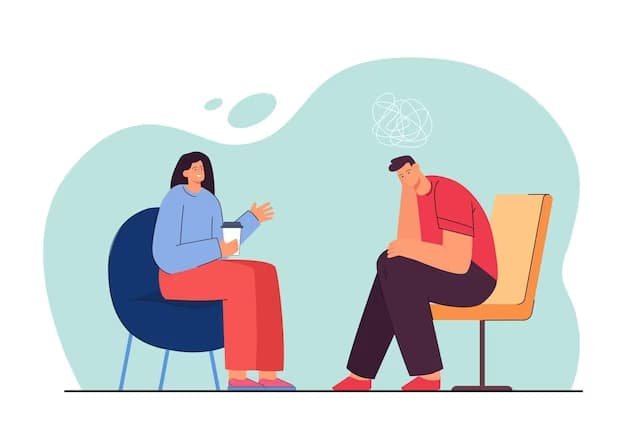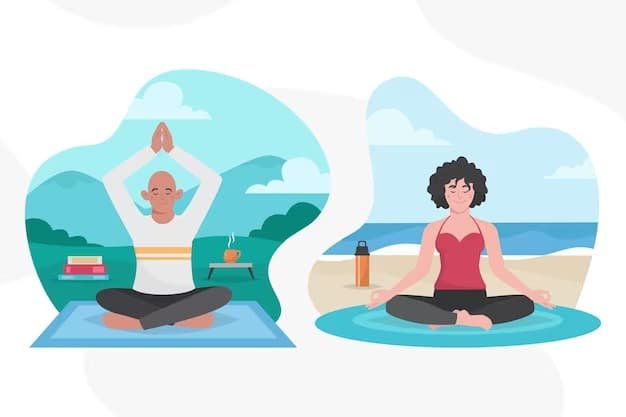Anxiety is a common and natural human response to stress, but when it becomes overwhelming and persistent, it can severely affect one’s quality of life. Counseling for anxiety is an effective way to manage and alleviate the symptoms associated with this condition. In this blog, we will explore what anxiety is, the benefits of counseling for anxiety, and strategies for coping and healing. Counseling has a healing technique.
Understanding Anxiety
Anxiety is a normal reaction to stress, and it can help us stay alert and focused in challenging situations. However, when anxiety becomes excessive or chronic, it can manifest as a mental health disorder. Generalized Anxiety Disorder (GAD), social anxiety disorder, panic disorder, and specific phobias are just a few examples of anxiety-related disorders.
People experiencing anxiety may have persistent and excessive worries, fears, or feelings of unease that interfere with their daily lives. These feelings can manifest in physical symptoms such as increased heart rate, muscle tension, restlessness, and difficulty concentrating.
Benefits of Counseling for Anxiety
Counseling for anxiety, often referred to as “talk therapy” or psychotherapy is a widely recognized and effective approach for addressing anxiety disorders. Here are some of the key benefits:
1. Professional Guidance

A trained and experienced therapist can provide guidance, support, and expertise in helping individuals manage their anxiety. They use evidence-based techniques to address the root causes of anxiety and develop coping strategies.
2. Safe and Non-Judgmental Environment
Counseling sessions offer a safe and confidential space where individuals can express their thoughts and feelings without fear of judgment. This non-judgmental environment encourages open and honest communication.
3. Identifying Triggers
Therapists work with individuals to identify the specific triggers that lead to anxiety. Once these triggers are recognized, it becomes easier to develop strategies to manage and mitigate anxiety when it arises.
4. Customized Treatment Plans
Counseling for anxiety is not a one-size-fits-all approach. Therapists tailor treatment plans to the individual, considering their unique experiences and needs. This personalized approach often leads to better outcomes.
5. Learning Coping Strategies
One of the primary goals of anxiety counseling is to teach individuals effective coping strategies. These strategies help individuals manage their symptoms, reduce the impact of anxiety on their lives, and improve their overall well-being.
If you need a psycho therapy, Contact Us
Strategies for Coping and Healing
Now that we’ve highlighted the benefits of counseling for anxiety let’s explore some key strategies that individuals can use to cope with and heal from anxiety:
1. Cognitive-behavioral therapy (CBT)
Cognitive-behavioral therapy is one of the most common therapeutic approaches for anxiety. It focuses on identifying and challenging negative thought patterns and replacing them with healthier, more constructive thoughts. This process can lead to a reduction in anxiety and improved emotional well-being.
2. Relaxation Techniques

Learning relaxation techniques such as deep breathing, progressive muscle relaxation, and mindfulness meditation can help manage anxiety symptoms. These practices promote a sense of calm and reduce stress.
3. Exposure Therapy
Exposure therapy is particularly effective for individuals with specific phobias or panic disorders. It involves gradually and safely exposing the individual to the feared object or situation to reduce anxiety responses over time.
4. Medication
In some cases, medication may be prescribed in combination with counseling to manage severe anxiety disorders. Medications such as antidepressants and anti-anxiety drugs can help alleviate symptoms, but they should be used under the guidance of a healthcare professional.
5. Lifestyle Changes
Simple lifestyle changes, such as maintaining a healthy diet, getting regular exercise, and ensuring adequate sleep, can have a positive impact on anxiety. A well-rounded approach to health can enhance one’s ability to cope with stress.
6. Support Systems
Building a strong support system is vital. Friends, family, or support groups can provide emotional support, understanding, and a sense of community during the healing process.
7. Mindfulness and Self-Care
Practicing mindfulness and self-care can help individuals stay in the present moment and reduce anxiety about the future. Engaging in activities that bring joy and relaxation can significantly contribute to the healing process.
Seeking Professional Help
While self-help strategies can be beneficial, it’s important to remember that anxiety disorders vary in severity, and professional help may be necessary. If anxiety is significantly impacting your daily life, relationships, or overall well-being, don’t hesitate to seek the guidance of a qualified therapist or counselor who specializes in anxiety treatment.
Counseling for anxiety can empower individuals to manage their condition effectively, develop healthier thought patterns, and lead fulfilling lives. By understanding anxiety, its benefits, and the strategies for coping and healing, individuals can take the first step toward a brighter, less anxious future.